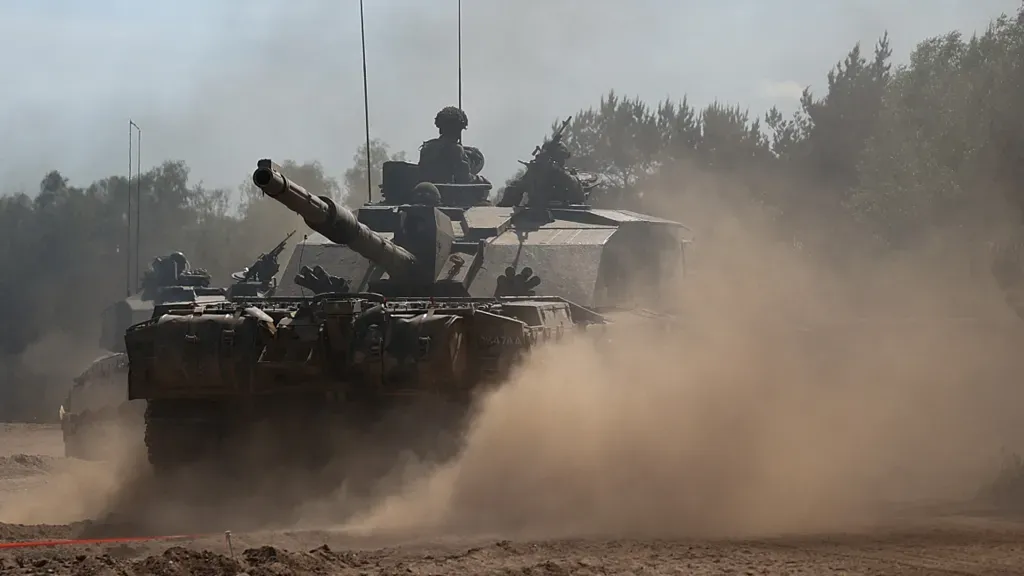Introduction
In a stirring address, the newly appointed head of the British Army, General Sir Roland Walker, has outlined an urgent and ambitious vision for the future of the UK’s defense capabilities. Speaking on Tuesday, General Walker emphasized the need for Britain to be prepared for potential conflict within the next three years, underscoring a rapidly evolving global landscape marked by escalating threats and uncertainties. This article explores the details of General Walker’s speech, the challenges facing the UK’s military, and the broader implications for national and global security.
The Call for Preparedness: General Walker’s Vision
General Sir Roland Walker’s first speech as the head of the British Army was both a call to action and a strategic blueprint for the future. He painted a stark picture of an “increasingly volatile” world, marked by a range of threats that could jeopardize global stability. According to Walker, while war is not a foregone conclusion, the UK must be proactive in preparing itself to counteract potential conflicts.

The Three-Year Timeline
Walker highlighted that the UK Army has “just enough time” to prepare for potential conflict, stressing the importance of readiness within a three-year window. This preparation involves not only enhancing current capabilities but also anticipating and mitigating future threats. Central to this strategy is a significant expansion of the Army’s fighting power, aiming to double its capabilities by 2027 and triple them by the end of the decade.
The Axis of Upheaval: Key Threats to the UK
In his briefing, General Walker identified several key threats that could impact the UK’s security in the near future. These threats, he warned, are not isolated but interconnected, creating a complex and challenging environment for defense planning.
Russia’s Potential Retaliation
One of the primary concerns is Russia’s potential for retribution. Despite the ongoing conflict in Ukraine, Walker believes that Russia may seek to retaliate against the West for its support of Ukraine, regardless of the conflict’s outcome. “It doesn’t matter how it ends,” Walker stated, “Russia will emerge from it probably weaker objectively – or absolutely – but still very, very dangerous and wanting some form of retribution for what we have done to help Ukraine.”
Walker’s assessment reflects a broader concern about Russia’s future actions and their potential impact on global security. Even if Russia emerges from the conflict weakened, its intentions and capabilities could pose significant challenges.
China and Taiwan
Another pressing issue highlighted by Walker is China’s intention to retake Taiwan. He expressed concern that China’s ambitions regarding Taiwan could escalate, especially given the current geopolitical tensions. The possibility of conflict in the Taiwan Strait has implications not only for regional stability but also for global security dynamics.
Iran and Nuclear Proliferation
Walker also addressed the threat posed by Iran, particularly its pursuit of nuclear weapons. The potential for Iran to develop or acquire nuclear capabilities adds another layer of complexity to international security concerns. The general’s comments reflect growing apprehension about the proliferation of nuclear technology and its implications for global stability.
A Mutually Reinforcing Threat
Walker noted that these nations, including Russia, China, and Iran, have developed a “mutual transactional relationship,” sharing weapons and technology. This cooperation among potential adversaries could exacerbate existing threats and create new challenges for the UK and its allies.
The Path to Deterrence: Modernizing the British Army
Despite the daunting threats, General Walker emphasized that war is not an inevitable outcome. The key to avoiding conflict, he argued, lies in re-establishing credible land forces capable of effective deterrence. The goal is to modernize the Army to ensure it can effectively deter potential adversaries and respond to emerging threats.
Modernization Focus
General Walker did not directly call for increased funding or additional troops in his speech. Instead, he advocated for a rapid modernization of the Army, focusing on technological advancements such as Artificial Intelligence and enhanced firepower. The aim is to transform the Army into a force capable of defeating an enemy three times its size, leveraging technology and lessons learned from recent conflicts.
Walker’s vision includes improving the Army’s ability to strike faster and farther, an approach informed by insights from the ongoing war in Ukraine. By adopting these advancements, the Army seeks to enhance its effectiveness and adaptability in an evolving security environment.
Defence Review and Funding Concerns
The general’s speech coincided with the UK government’s launch of a comprehensive defense review aimed at reassessing the state of the armed forces. Defence Secretary John Healey described the current state of the armed forces as “hollowed-out,” citing issues such as procurement waste and neglected morale. This review is expected to address these concerns and provide a roadmap for future defense strategies.
Current Army Numbers and Funding
According to the latest figures from the Ministry of Defence, the UK’s regular Army consists of 75,325 members, excluding Gurkhas and volunteers. This number has been declining in recent years due to recruitment challenges and retention issues. The previous Conservative government had reduced its target headcount from 82,000 to 72,500 by 2025.
The UK is committed to spending at least 2% of its GDP on defense per year, in line with NATO requirements. Currently, the UK allocates 2.3% of its GDP to defense. Prime Minister Sir Keir Starmer has indicated that the defense review will set a goal to increase this spending to 2.5%, although a specific timeline for this increase has not yet been established.
Conclusion
General Sir Roland Walker’s call for heightened readiness and modernization of the British Army underscores the complexities and uncertainties of today’s global security environment. As the UK faces a range of emerging threats, the focus on preparing for potential conflict within the next three years highlights the need for strategic foresight and adaptability. The ongoing defense review and modernization efforts reflect the UK’s commitment to maintaining a robust and capable military force, ensuring it is equipped to navigate the challenges of an increasingly volatile world.


